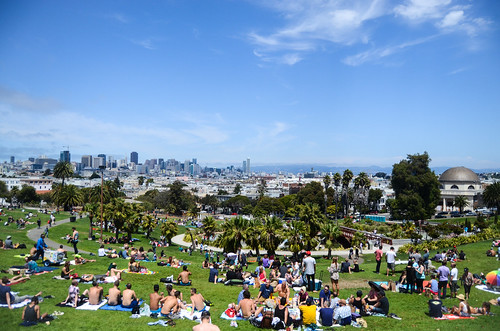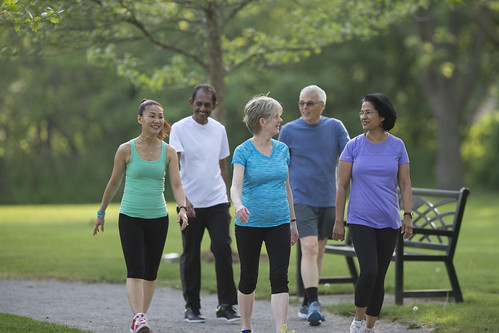
While city living has its share of conveniences, stressors like traffic congestion, pollution, and weakened social ties threaten the health and well-being of many urban dwellers. Such factors can lead to a range of mental and physical health concerns. For example, stress is linked to negative impacts on immune functioning.
However, the relationship between urban green space and health is intrinsically related. Recent studies demonstrate how enhanced immune functioning is linked to contact with nature: Immersion in natural landscapes such as urban forests can reduce stress and have a restorative effect on mental and social health.
Viniece Jennings at the U.S. Forest Service is building upon this work. Her research in underserved communities links the benefits of green space to improvements in health outcomes from ailments such as heat-related illness, cardiovascular disease, obesity, and psychological health.
Jennings, a scientist at the Southern Research Station, collaborated with Lincoln Larson on a study of the relationship between parks and the Gallup - Healthways Well-Being Index – a project that was among the first of its kind in the U.S. They gathered data from 44 cities across the country to examine the relationship between urban park quantity, quality, and accessibility across multiple measures of well-being from the Gallup Index. Most intriguingly, the amount of green space within a city was a key factor for some dimensions of wellbeing.

Urban residents reported higher levels of community and physical well-being in cities with a greater amount of park coverage when measured by the percentage of city area with public parks as compared with park quality as measured as per capita spending on parks. Overall, the strong relationship between park coverage and health suggests that expansive park networks relate to well-being in ways that positively impact urban quality of life.
Since four out of five individuals in the U.S. live in cities, it is also interesting to know the impact of urban forests at a social level. In another recent study, Jennings described the link between the social aspects of health that can be enhanced through urban green spaces. Green spaces can create a sense of belonging and communal identity by creating opportunities for residents to be physically active and socialize with neighbors.
This research highlights implications for urban planning and public health through the development and retention of green spaces in urban communities.

